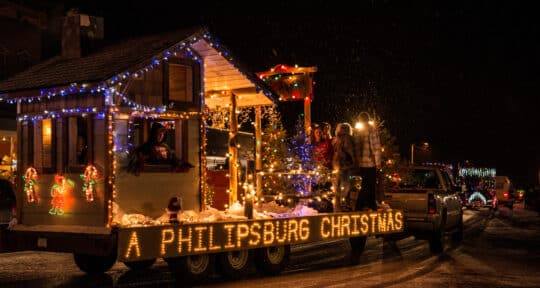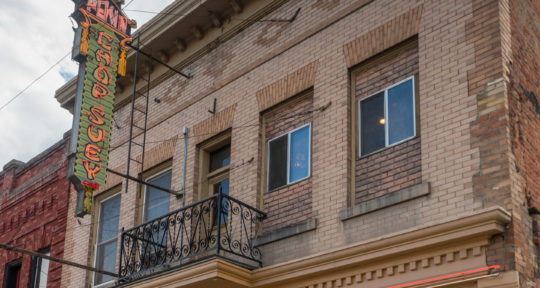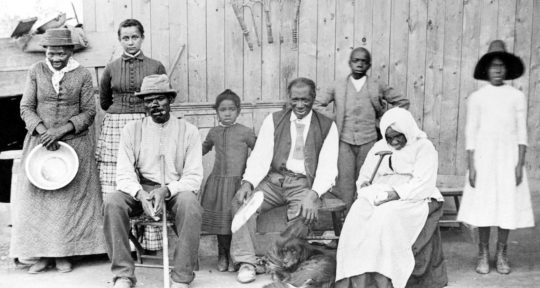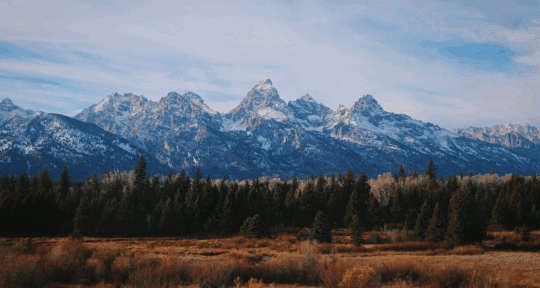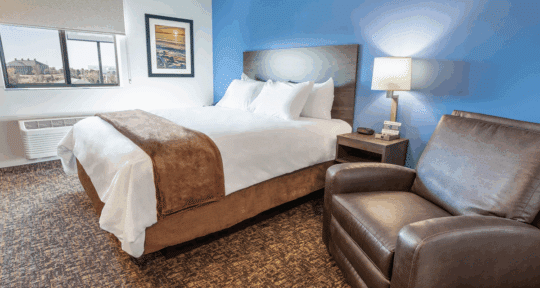“Fish in the sea, you know how I feel/ River running free, you know how I feel/ Blossom on the tree, you know how I feel/ It’s a new dawn/ It’s a new day/ It’s a new life/ For me/ And I’m feeling good.”
These words, first sung by Nina Simone in 1965, reveal a communion with nature and celebration of what it means to feel alive. Outdoor Afro, a national organization that celebrates and inspires Black connections and leadership in nature, captures Simone’s sentiment perfectly through its mission.
With nearly 90 volunteer leaders in 30 states, Outdoor Afro connects thousands of people to outdoor experiences with the goal of helping Black people take better care of themselves, their communities, and our planet. Founded in 2009, the organization has grown to inspire Black joy and fellowship within local communities and advocate to protect public lands.
“Outdoor Afro is focused on creating spaces for Black joy in nature,” says Yanira Castro, Outdoor Afro’s communications director. “Part of what Outdoor Afro does is share these images on social media to change the visual representation of what it means to love and enjoy the outdoors.” The message? Nature does not care about skin color.
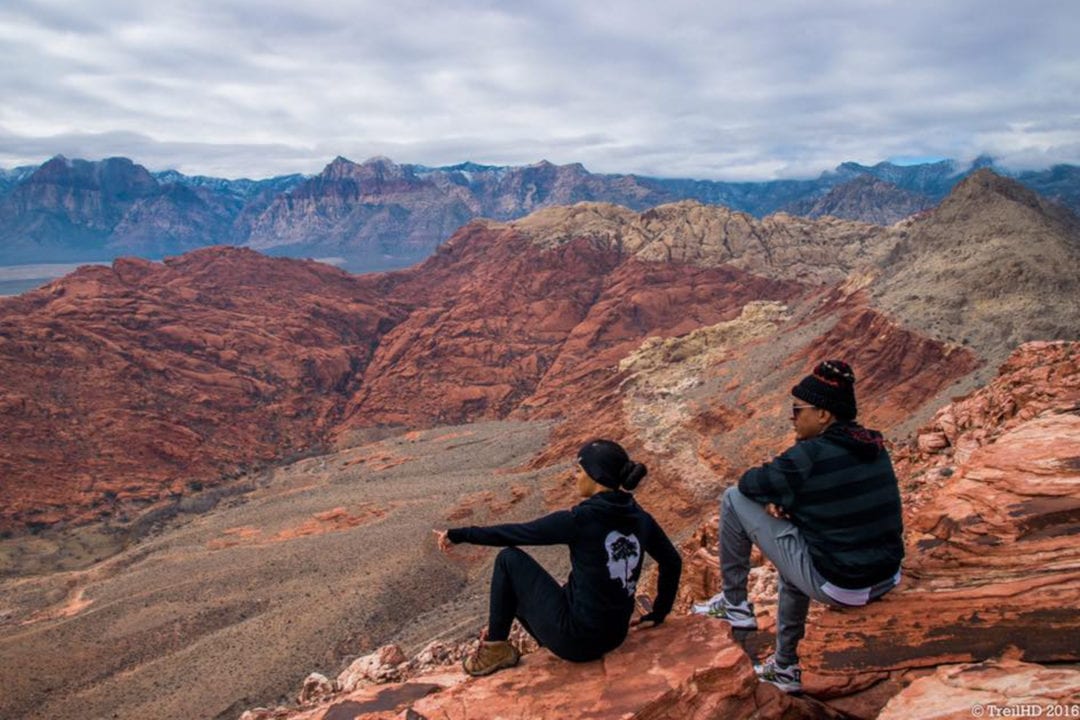
Reconnecting to nature
Outdoor Afro hosts Black history hikes, bicycling trips, and now—due to COVID-19—yoga sessions over Zoom. But the organization provides its members with far more than just an opportunity to be active in nature; it also gives them a pathway to regenerate and heal.
“Being outdoors allows me to breathe deeply,” says Melissa Pelham, an Outdoor Afro member based in Charlotte, North Carolina. “My mind is cleared and I’m able to think better and meditate on future goals that I want to accomplish. I’m very grateful for the ability to move my body when there are so many who can’t.”
Outside of regional group activities, Outdoor Afro also offers community initiatives. The Making Waves Swimmership program provides grants to people who want to learn to swim—an activity that has historically been limited for Black Americans, due to both segregation and economic disparities. “When people learn how to swim, it opens the door to so many other activities,” Castro says.
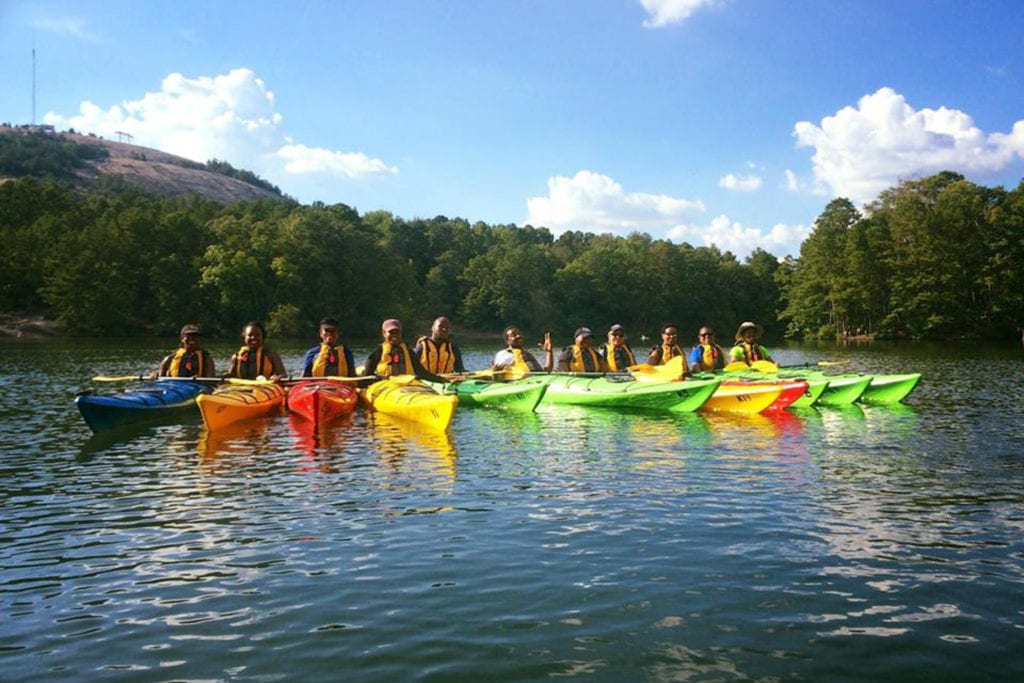
Volunteer leader James Smith cites several important historical figures who exemplify the mission of Outdoor Afro: Harriet Tubman, who used the stars and waterways to find freedom; James Beckwourth, who found many of the mountain routes on the West Coast and established Pueblo, Colorado; and Linda McKeever Bullard, an attorney who fought against environmental racism and led an effort in the 1970s to connect Black people back to nature.
“It’s important for African Americans to get outdoors; as descendants of the Africans brought here against their will—to recapture our very essence,” Smith says. “African Americans owe it to our ancestors and ourselves to recapture the outdoor skills we lost so long ago. Many Africans Americans felt a true sense of belonging and calm outdoors, in an environment that is part of our very spirit.”
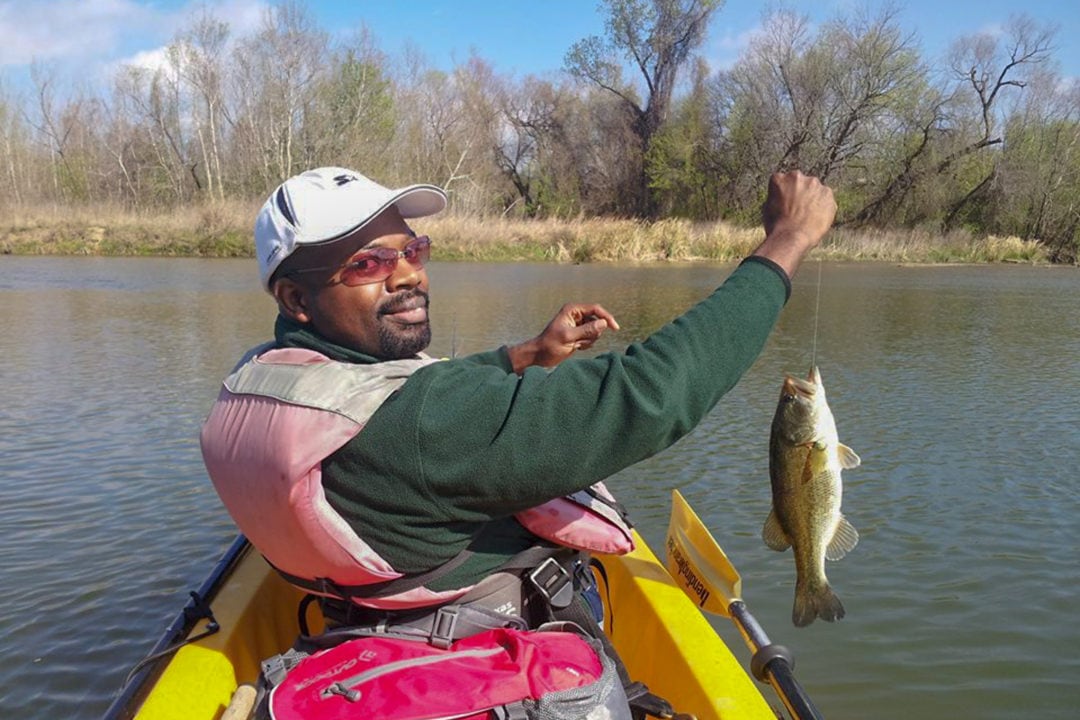
That focus on connecting—or reconnecting—to nature, no matter your activity skill level, is what makes the Outdoor Afro community’s work so impactful.
“I joined because of the camaraderie and opportunity to engage in activities that I previously had not done, and to do them with people that looked like me,” Pelham says.
Her favorite activity was an overnight camping trip to Stone Mountain, North Carolina, which included a hike to one of the summits. “The view was breathtaking,” she says. “And to do it with a group who supported you during the rough patches made it all the better. I felt a great sense of accomplishment that day.”
Finding peace and calm
The second weekend of September, Outdoor Afro hosted a virtual version of its annual Glamp In gala and fundraiser. Featuring founder and CEO Rue Mapp; rapper, director, and activist Boots Riley; and hip hop journalist Davey D, the free event brought people together from around the world.
Local Outdoor Afro meetups can range from hiking and backpacking to fishing, biking, birding, or sunset watching. Some events are virtual, others take place in person with social distancing and other precautions in place.
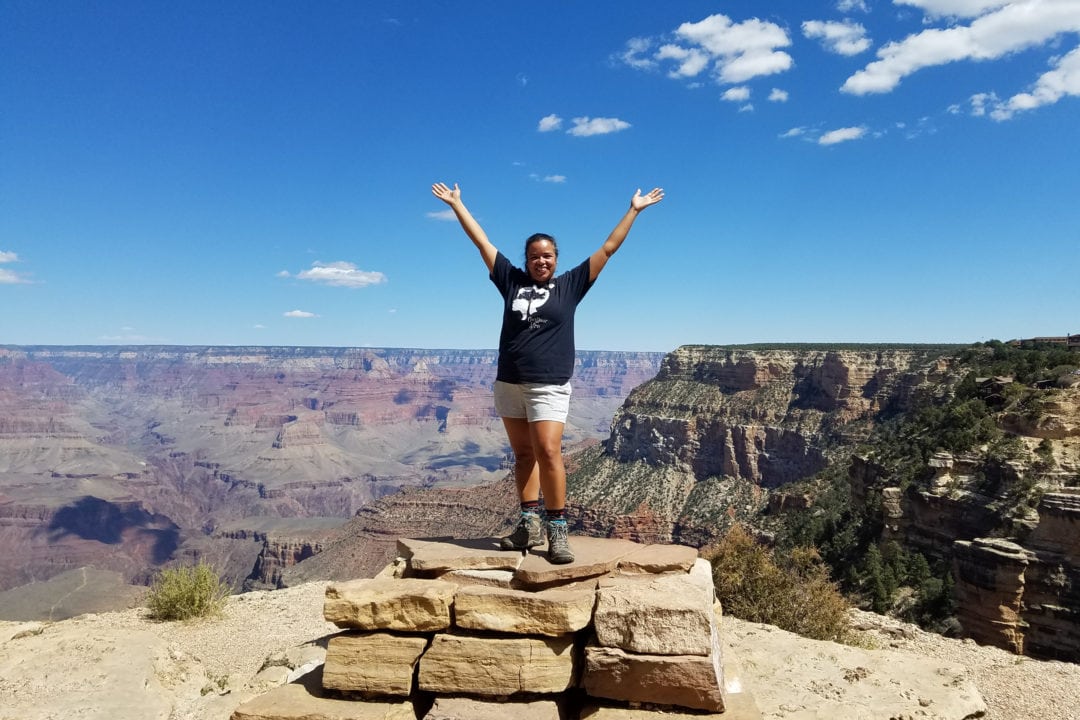
“Spending time outdoors helps me find peace and calm when I’m going through something,” says Claire Woods, an environmental lawyer in Los Angeles. “It helps me connect to Black history, which is found in so many of our natural spaces. And it inspires me to continue my work to protect the environment, and all people who depend on it, from destruction. It’s also a great way to make friends who enjoy the same things I enjoy.”
Though she missed being a part of an Outdoor Afro team that was the first all-Black group to ascend Mount Kilimanjaro in Tanzania, Woods says that until she can travel internationally again, she intends to make use of her America the Beautiful Pass and explore more of the country’s national parks. “There are so many beautiful natural spaces right in our backyard,” she says.
Castro agrees: “I love the sound of the outside,” she says. “It’s not silence. It’s rustling leaves, a woodpecker in the distance, the rushing water of a nearby stream. It soothes me.”
If you go
Outdoor Afro meetups and events (both virtual and in-person) are listed by state on the organization’s website.

